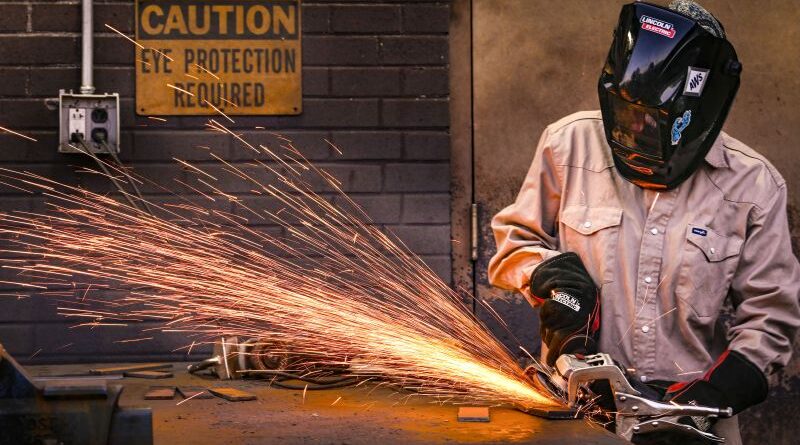Looking for job security in this volatile market? The amazing method pays off | CNN Business
New York
CNN
–
Going to college in the United States has long been seen as a ticket to a high-paying job. But the growing share of high school students enrolling in vocational schools instead of four-year programs may not be missing out on as many rewards as you might think.
From 2019 to 2024, hiring rates decreased for workers in their 20s for jobs requiring a bachelor’s degree, while hiring rates increased for jobs requiring a master’s degree. manual or labor, according to data from the national payroll processing company ADP. And during that five-year period, enrollment in bachelor’s degree programs fell by 4%, while enrollment in vocational schools increased by 5%, according to data from the National Student Clearinghouse.
“The promise of early entry into the workforce, lower education costs and the ability to earn higher wages earlier in their careers are compelling reasons for this approach,” said Bart Taylor, a professor at Texas A&M University, who teaches nts’ curriculum development for work and career. science education programs.
That means that even though the overall labor market is showing signs of cooling, hiring workers without a college education can still be a source of economic strength.
The rate of wage growth for workers with vocational or labor degrees is the same as that of those earning a bachelor’s degree, according to the Atlanta Federal Reserve’s Wage Growth Tracker.
That said, bachelor’s degree recipients earned a weekly wage of $1,493 last year compared to $1,058 earned by associate’s degree recipients, according to data from the Bureau of Labor Statistics. Data for degree recipients includes graduates of academic and vocational programs.
But some industries are skewed toward workers without degrees and even have higher wage growth than industries that favor those with degrees. For example, wages for construction workers rose 4.3% on average in the 12 months ending in July; in the professional services industry, wages rose 3.9%, according to the BLS.
Part of the change in trade and vocational school enrollment is due to the reassessment of blue-collar work that has occurred during the pandemic, said Taylor, who is also the vice president of the business and trade education department. industry in the Vocational and Technical Education Association. “This has led employers to offer more wages and benefits to attract and retain workers.”
Practical experience, required for many blue-collar jobs, could not be taught during the pandemic, he added. For example, “although welding concepts could be taught online, students were deprived of the valuable practice time needed with real tools.”
Now that many of those programs are back in business, many Americans are building trade skills to take jobs where there is still a shortage of skilled workers, such as electricians. , carpenters and plumbers.
Another reason for the shift in vocational and trade school enrollment is the advancement of artificial intelligence, said Ben Hanowell, director of human resources research at the ADP Research Center.
Across all major working age groups, Americans between the ages of 18 and 24 are the most concerned about AI replacing some or most of their jobs, according to a recent survey made by ADP.
This may help explain why the share of 20- to 24-year-olds working in blue-collar jobs has risen rapidly in recent years and remains high. compared to people 25 to 39, according to a report written by August Hanowell. In general, blue-collar jobs, which require a lot of manual labor, are often considered vulnerable to being replaced by AI, he said.
“This job security can contribute to the continued demand for these jobs,” he told CNN. “Furthermore, as AI and technology continue to evolve, the need for workers who can store, operate and work alongside these technologies can improve the quality of business skills.”
It is unclear how blue-collar workers will fare against white-collar workers if the overall labor market cools.
However, Taylor said he is optimistic that “the appreciation of skilled labor may continue.”
“However, a major recession could dampen the pace of wage growth and possibly cause further job stress,” he added.
#job #security #volatile #market #amazing #method #pays #CNN #Business
